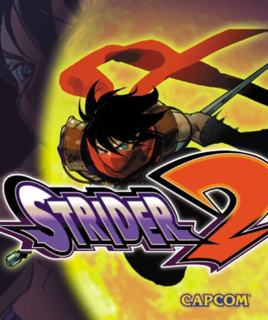A worthy successor that doesn't realize its true potentials.
Gameplay:
A long, long, long time ago, during the old-school era, games weren't particularly complicated. No-one could portray elaborate stories, gameplay, and graphics due to the limitations of technology back then. However, they were able to create one thing that seems to be lacking today: ultra-challenging gameplay that demanded mastery.
This is the spirit of Strider. Fortunately, this spirit lives on in the sequel in an age (circa 2000) where more focus is being shifted on narrative and graphics. Albeit with a few additions and tweaks. Strider has all of his old moves and a few new ones. There's also the option of an multiple-pathed (though ultimately linear) game. The game is still very short. Clocking in at least 40 minutes spread across 5 stages, but it was never about the length, anyway.
Unfortunately, there is one fatal flaw with the sequel. Unlimited continues. Sadly, the only incentive to master the game is for the stage-end ranking. Mastery is no longer necessary for completion. It's only required for bragging rights.
The game also comes with a faithful emulation of the original Strider from the arcades, and this is a definite plus in the overall value. BUT, there's a catch. The same fatal flaw of unlimited continues is programmed into the original.
Plot:
Since Strider focuses on gameplay, plot almost seems unnecessary. There is, admittedly, more plot in Strider 2 brought by the short still scenes at the end of every stage. It follows almost the same plot of Strider 1, which was basically an excuse to kill the Grand Master. This time, though, it's 2000 years later.
Graphics:
Strider and most of the enemies are rendered in 2D sprites, while some of the bigger enemies are rendered in full polygons. All of the stage designs are also in 3D. There's nothing noteworthy about the graphics or level designs. If anything, there are some throw-backs to the original Strider.
Sound:
There's nothing terribly remarkable about the soundtrack, and nothing will probably be memorable. There's the occassional remixed tribute from the original Strider, but beyond that it merely serves its purpose.
Conclusion:
It's still a great Strider game with a heavy selling point on gameplay. It's not as memorable as the original Strider, nor does it leave a large impression. The solid gameplay mechanics are enough reason to give this game a go. Unfortunately, the gameplay is largely crippled by an overgenerous continue system.
Overall, I still think it deserves a place in my collection. I would recommend a rental first, but this game isn't exactly easy to find.

